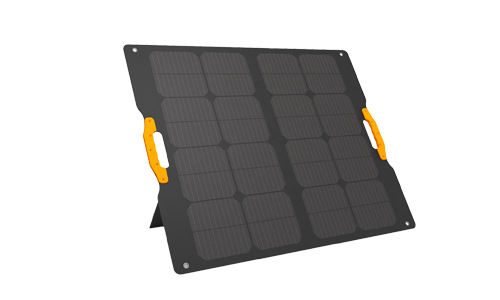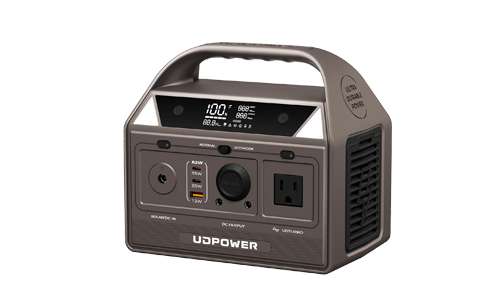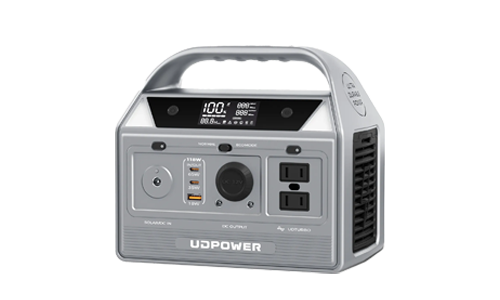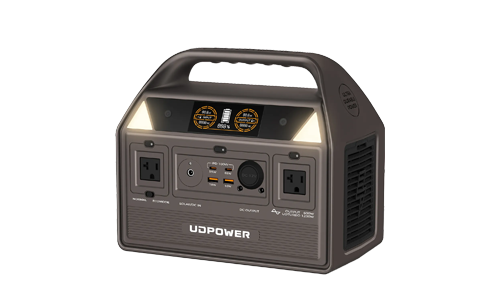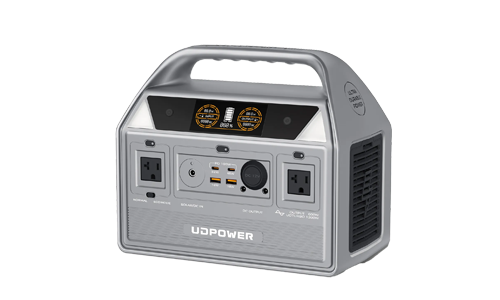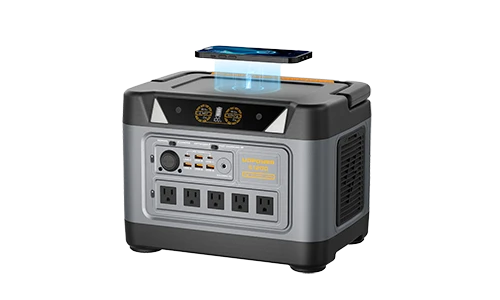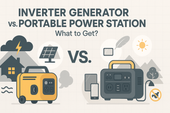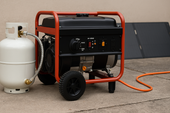How to Choose the Right Solar Generator
ZacharyWilliamChoosing the right solar generator can be a daunting task. With so many options available, it's easy to feel overwhelmed.
Solar generators are a sustainable energy solution. They convert sunlight into electricity, providing power without relying on fossil fuels.
These devices are perfect for backup power during outages or for off-grid living. They offer a clean, quiet, and eco-friendly alternative to traditional gas generators.
When selecting a solar generator, consider your specific needs. Are you looking for a solar generator for home use, or do you need something portable for an RV?
Power output and capacity are crucial factors. Larger generators can power more appliances but may lack portability.
Battery type also matters. Lithium-ion batteries offer better performance and lifespan compared to lead-acid batteries.
Cost is another important consideration. Prices vary based on size, capacity, and brand.
This guide will help you navigate the options and make an informed decision.

What Is a Solar Generator and How Does It Work?
A solar generator is a portable power station that uses solar panels to capture energy from the sun. This energy is then converted into electricity, which can be stored in a battery for later use.
The components of a solar generator typically include:
- Solar panels to collect sunlight
- An inverter to convert energy into usable electricity
- A battery to store the electricity
- Outlets for connecting devices
This eco-friendly device is an excellent choice for reducing reliance on the grid. It provides a sustainable source of power for various applications, from home use to camping.

Solar generators require minimal maintenance. There are no moving parts, which reduces wear and tear. Additionally, they're much quieter and cleaner than traditional gas generators.
Harnessing the sun's power allows for cost savings over time. It's a reliable option, especially in areas with frequent sunlight.
Key Benefits of Using a Solar Generator
Solar generators offer numerous advantages over traditional power sources. They are environmentally friendly, producing no emissions during operation. This makes them an ideal choice for eco-conscious consumers seeking green energy solutions.
Cost efficiency is another significant benefit. While the initial purchase may be an investment, solar generators save money on electricity bills over time. They provide long-term economic gains by reducing the need for fossil fuels.
Key benefits of using a solar generator include:
- Eco-friendly: No emissions, reduces carbon footprint
- Cost-effective: Saves money on energy bills
- Quiet operation: Minimal noise compared to gas generators
- Low maintenance: Fewer moving parts mean less wear and tear
-
Versatile applications: Suitable for homes, RVs, and outdoor use

Moreover, solar generators are highly versatile. They can be used in various settings, from home backup power to outdoor adventures. Their quiet operation makes them suitable for residential areas without disturbing neighbors.
Types of Solar Generators: Home, Portable, and RV
Solar generators come in various types, each catering to different needs. Understanding these types is vital to making the right choice. The main categories include home, portable, and RV solar generators.
Home solar generators are designed to power entire households. They provide backup during outages and can sometimes power homes off-grid. These units often have higher capacity and larger batteries to support multiple appliances.
Portable solar generators are compact and lightweight. They offer flexibility for outdoor use, camping, and road trips. These generators are easy to transport and store, making them perfect for on-the-go power needs.
RV solar generators are tailored for recreational vehicle owners. They ensure your RV stays powered even in remote locations. These generators are often a hybrid of home and portable types, balancing power output with mobility.
Different types of solar generators include:
- Home generators for residential use
- Portable generators for travel and outdoor activities
- RV generators for road trips and remote locations

Choosing the correct type depends on your specific energy needs and lifestyle. Understanding each type helps you invest in the right solar solution.
Essential Factors to Consider When Choosing a Solar Generator
Selecting the right solar generator requires careful consideration of several key factors. These factors ensure that the generator you choose meets your energy needs effectively. Begin by evaluating the power output and capacity. This determines how much electricity the generator can supply and for how long.
Battery type and storage capacity are equally crucial. They dictate the generator's ability to hold and discharge power efficiently. Opt for lithium-ion batteries if you need longer-lasting power. These are typically more efficient and have a longer lifespan.
Charging options and solar panel compatibility must be considered as well. Check if the generator can be charged using solar panels, wall outlets, or car chargers. This flexibility is essential for diverse usage scenarios.
Portability and size could influence your decision too. Consider where and how you'll be using the generator, especially for travel or camping needs.
Durability and build quality impact the generator's longevity and reliability. Ensure that the model you choose is made of sturdy materials.
When reviewing solar generators, you might consider:
- Power output and capacity
- Battery type and storage
- Charging options
- Portability
- Durability
Focusing on these factors helps you make an informed decision. Evaluate your needs against the features available to find the perfect match.

Power Output and Capacity
Power output and capacity are fundamental when choosing a solar generator. First, identify your power needs by listing the essential devices you plan to power. More power-hungry appliances will require larger capacity generators.
Understand the wattage each appliance consumes. This helps in selecting a generator with adequate power. A generator's rated power indicates its continuous power output.
Ensure that the generator's capacity aligns with your energy requirements. This includes handling peak loads without strain. Some generators offer expandable battery options. These allow for increased capacity through additional batteries.
Power considerations include:
- Device wattage
- Rated power output
-
Expandable battery options

Battery Type and Storage
The battery type and storage capacity are pivotal in a solar generator. Most generators come with lithium-ion or lead-acid batteries. Lithium-ion batteries are popular for their longevity and efficiency.
Consider the generator's battery life and recharge cycles. Longer battery life means less frequent replacements, saving costs over time. The storage capacity of the battery will dictate how much power is available when the sun isn't shining.
Ensure the generator's battery storage matches your usage. Heavier power needs will require bigger storage capacities. Some models offer modular storage options, allowing for future upgrades.
Battery considerations include:
- Battery type (Lithium-ion vs. lead-acid)
- Battery life and recharge cycles
-
Storage capacity

Choosing the right battery ensures reliable and continuous power supply.
Charging Options and Solar Panel Compatibility
Charging options are crucial for ensuring your solar generator remains powered. Review the compatible charging sources before making a purchase. Some generators support solar panel, AC outlet, and car charger inputs.
The ability to charge through different means increases convenience, especially during travel. Evaluate the compatibility with existing solar panels, if any. It's essential to ensure the panels are efficient and capable of fast charging.
Some solar generators come with integrated solar panels. Others require separate purchases, so decide based on your preferences.
Charging options include:
- Solar panel charging
- AC outlet input
-
Car charger compatibility

Consider these options for a seamless charging experience.
Portability and Size
Portability is a significant factor if you plan to move your generator often. Look for lightweight and compact models for easy transportation. Portable generators are ideal for camping or road trips.
Consider how often you need to relocate your generator. Larger units may provide more power but are less convenient to move. Ensure the generator fits in your vehicle if traveling frequently.
Look for models with:
- Compact design
- Lightweight build
-
Easy transport features

Choosing a portable generator ensures power is available wherever you are.
Durability and Build Quality
Durability ensures that your solar generator lasts in various conditions. Look for models with robust construction and materials. This is essential if you plan outdoor usage, where weather can be harsh.
Check for features like water-resistance and sturdy casing. These can significantly impact the generator's lifespan and reliability. Opt for models known for long-term performance.
Durability features include:
- Robust construction
- Weather resistance
-
High-quality materials

A durable generator guarantees stable power supply in different environments.
Cost of Solar Generators: What to Expect
Understanding the cost of solar generators is crucial for budgeting. Prices range based on size, capacity, and brand. Generally, larger and more powerful models will be more expensive.
Several factors influence cost, including the technology and features. Advanced models with smart technology or expandable batteries can cost more. However, the upfront expense might be offset by savings on energy bills over time.
When deciding your budget, consider the long-term benefits versus the initial cost. Higher upfront costs can often lead to greater long-term savings. It's essential to weigh these factors in your decision.
Here's a quick look at what influences solar generator pricing:
- Size and capacity
- Technology and features
-
Brand reputation
| Category | Capacity Range | Typical Usage | Price Range (USD) |
|---|---|---|---|
| Small Solar Generators | 100 – 500 Wh | Charging phones, tablets, small lights | $150 – $500 |
| Medium Solar Generators | 500 – 1,000 Wh | Laptops, routers, mini-fridges, CPAP | $500 – $1,200 |
| Large Solar Generators | 1,000 – 2,000 Wh | Refrigerators, TVs, power tools | $1,000 – $2,500 |
| Extra-Large / Whole-Home Backup | 2,000+ Wh (Expandable) | Multiple appliances, partial home backup | $2,500 – $6,000+ |

Thoroughly assess your energy needs and financial constraints for the best investment.
Where to Buy Solar Generators and What to Look For
You can find solar generators online and in physical stores. Buying online often provides more choices and competitive prices. Physical stores may offer the benefit of immediate advice from sales staff.
When buying a solar generator, keep these key factors in mind:
- Price: Ensure it fits your budget.
- Warranty: Look for a solid warranty for peace of mind.
-
Reviews: Check customer feedback for quality insights.

Remember to confirm the return policy and support options. Making an informed decision will ensure you get the most value for your purchase.
Solar Generator Use Cases: Home, Apartment, RV, and Emergency
Solar generators offer unique benefits for various settings. For homes, they provide a reliable backup during power outages. This ensures essential appliances keep running smoothly.
In apartments, solar generators can reduce reliance on grid power. They offer a clean energy source without hefty installations. Noise reduction is another plus in shared spaces.
RVs greatly benefit from portable solar generators. These units offer power on the go and enhance off-grid adventures. Their quiet operation adds comfort to your travel experience.
Solar generators are crucial during emergencies. They provide power for crucial devices during unexpected outages. This can be life-saving in severe weather scenarios.
Key use cases include:
- Home use: Backup power and savings on bills.
- Apartments: Quiet and efficient energy source.
- RVs: Power on the move with ease.
-
Emergency: Reliable power during crises.

Frequently Asked Questions About Solar Generators
People often wonder about the reliability of solar generators. They are indeed dependable for various needs. Their effectiveness has improved with advancements in technology.
Another common question is about maintenance. Fortunately, solar generators require little upkeep. This makes them an appealing choice for many users.
Key questions include:
- Are solar generators cost-effective?
- Yes, they save on electricity bills over time.
- How long do they last?
- With proper care, many last several years.
- Do they work in cloudy weather?
- They can generate power but less efficiently.
Conclusion: Making the Right Choice for Your Needs
Choosing the right solar generator means understanding your power requirements and lifestyle. Whether for home use, RV adventures, or emergencies, finding a suitable model is key. Assess factors like power output, battery type, and portability to ensure the generator aligns with your needs.
Investing in a solar generator is a step towards sustainable living. With ample research and consideration, you can select a system that provides reliable energy and reduces dependence on traditional power sources. Make the best choice and enjoy eco-friendly electricity for years to come.
